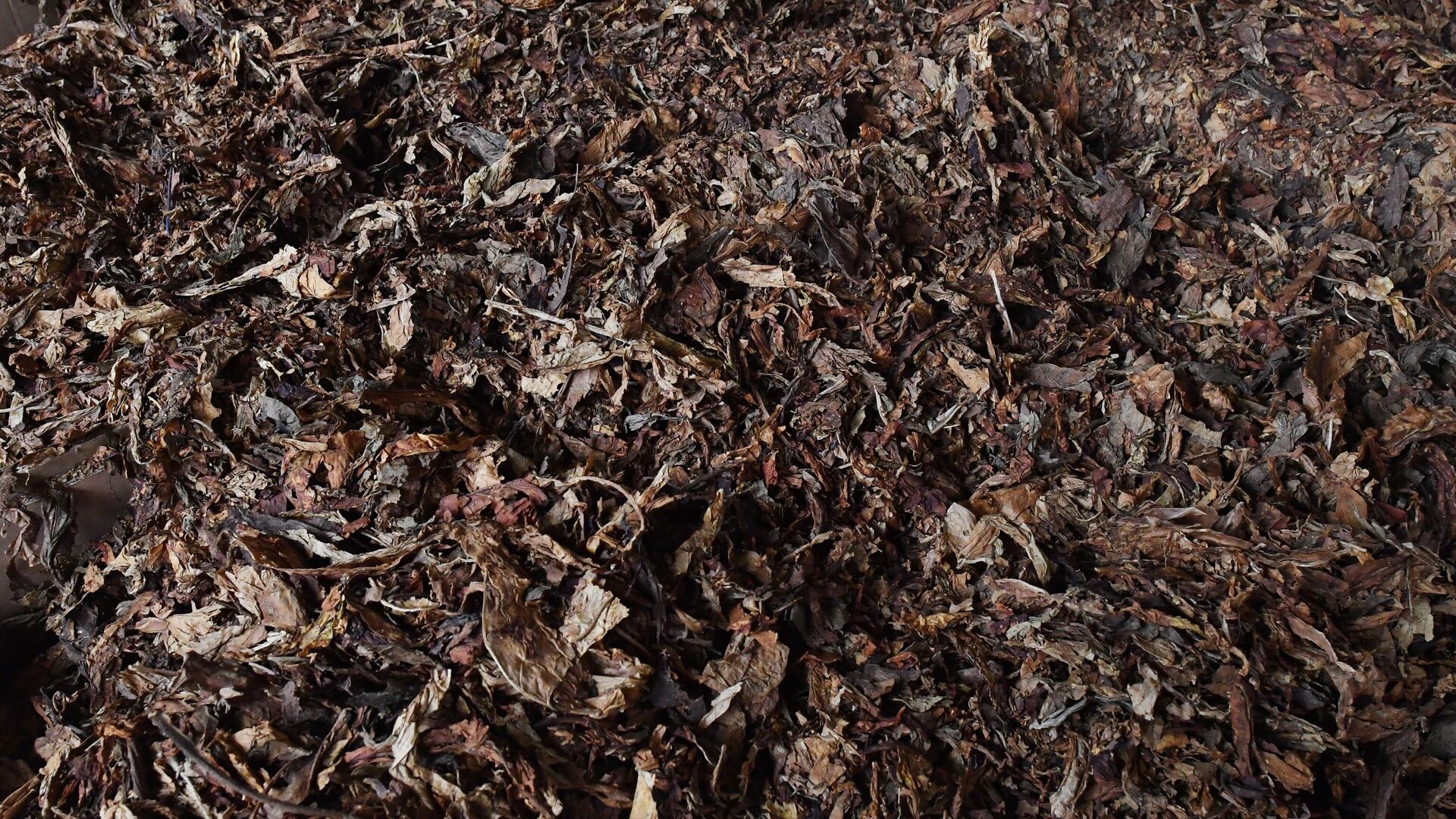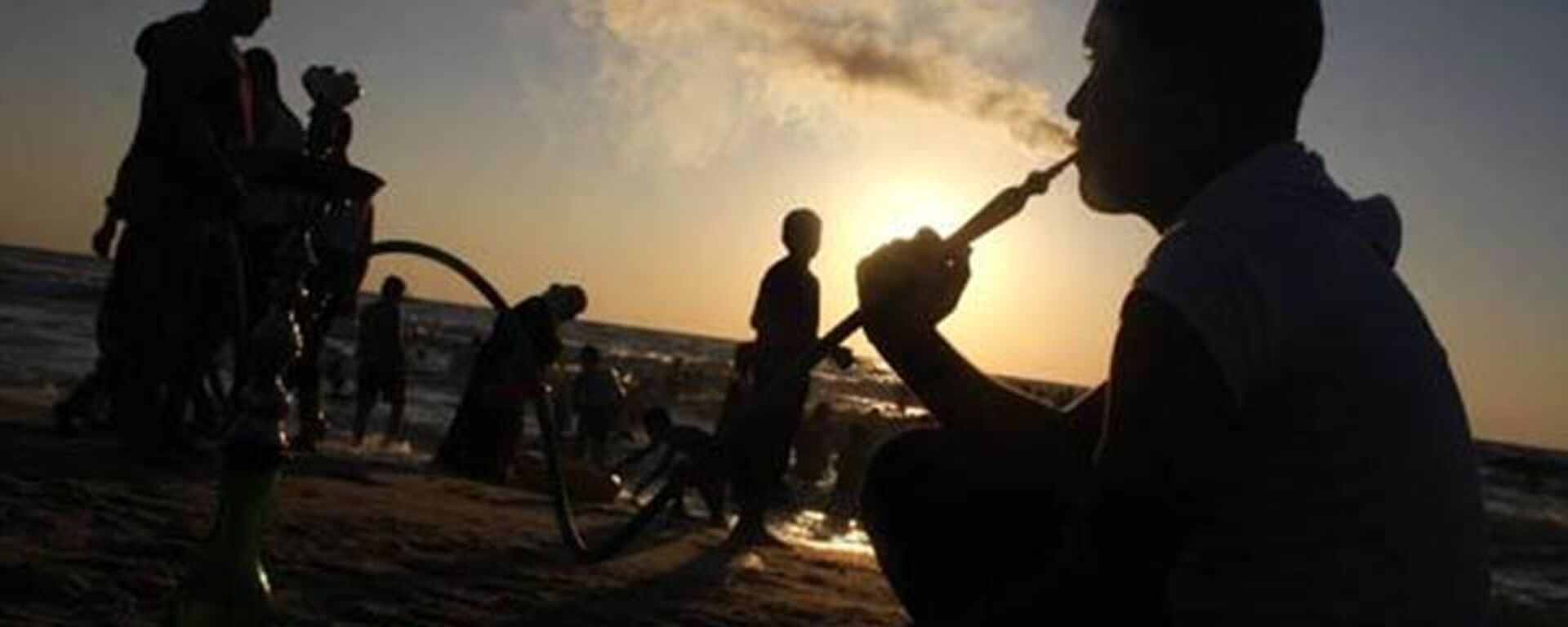https://en.sputniknews.africa/20240209/1064990140.html
WHO Praises Russia's Innovative Tobacco Control Technology
WHO Praises Russia's Innovative Tobacco Control Technology
Sputnik Africa
The World Health Organization (WHO) has commended Russia for its effective leadership in combatting illegal tobacco through the implementation of an innovative... 09.02.2024, Sputnik Africa
2024-02-09T09:40+0100
2024-02-09T09:40+0100
2024-02-09T14:25+0100
russia
panama
ruble
tobacco
world health organization (who)
health
technology
international
https://cdn1.img.sputniknews.africa/img/07e8/02/09/1064990321_0:159:3077:1890_1920x0_80_0_0_02ba4453a7ed3bdc8344ed7faaf0f430.jpg
The World Health Organization (WHO) has recognized Russia as a global leader in the fight against illegal tobacco. This acknowledgment came during the 10th session of the Conference of the Parties to the WHO Framework Convention on Tobacco Control (FCTC) held in Panama from February 5 to 10.“Russia has been listed among the countries with policies that offer the greatest protection to their citizens from the harms of tobacco,” the head of the delegation, Deputy Minister of Health Mr. O. Salagay, said.The technology relies on digital codes in the Data Matrix format assigned to each pack. This code contains information including production point, date, expiration, and licensing documents. The information is updated at every stage of the product's lifecycle until final sale. Illegal products are flagged by cash registers in stores, making them impossible to sell.To empower citizens and enhance transparency, a sophisticated mobile application has been introduced. This application allows users to verify the legality of various products, including tobacco and 16 other categories such as pharmaceuticals, dairy, footwear, and photographic equipment. Currently, 18 million users utilize this app, resulting in a significant 25% reduction in illegal tobacco within the initial year of the system's implementation. Furthermore, 18 tobacco production facilities have been legalized, while 45 illegal ones were shut down.The system has also yielded positive outcomes in other sectors, with a 12-fold decrease in substandard dairy products, a 20% reduction in the illegal perfume trade, more than a two-fold decrease in the illicit tire market, and the discovery of 450 new water producers who began operating legally, representing over 25% of the market.The authorities estimate the tax impact of the system to be nearly 500 billion rubles ($5.5 billion) and expect this figure to at least triple by 2025.
https://en.sputniknews.africa/20231104/they-smoke-like-locomotive-engines-ghanian-mp-raises-concerns-about-shisha-smoking-youth-1063303681.html
russia
panama
Sputnik Africa
feedback@sputniknews.com
+74956456601
MIA „Rossiya Segodnya“
2024
Sputnik Africa
feedback@sputniknews.com
+74956456601
MIA „Rossiya Segodnya“
News
en_EN
Sputnik Africa
feedback@sputniknews.com
+74956456601
MIA „Rossiya Segodnya“
Sputnik Africa
feedback@sputniknews.com
+74956456601
MIA „Rossiya Segodnya“
russia, panama, ruble, tobacco , world health organization (who), health, technology, international
russia, panama, ruble, tobacco , world health organization (who), health, technology, international
WHO Praises Russia's Innovative Tobacco Control Technology
09:40 09.02.2024 (Updated: 14:25 09.02.2024) The World Health Organization (WHO) has commended Russia for its effective leadership in combatting illegal tobacco through the implementation of an innovative digital tracking system. This system has played a crucial role in reducing the illegal tobacco trade and improving market transparency.
The World Health Organization (WHO) has recognized Russia as a global leader in the fight against illegal tobacco. This acknowledgment came during the 10th session of the Conference of the Parties to the WHO Framework Convention on Tobacco Control (FCTC) held in Panama from February 5 to 10.
“Russia has been listed among the countries with policies that offer the greatest protection to their citizens from the harms of tobacco,” the head of the delegation, Deputy Minister of Health Mr. O. Salagay, said.
The technology relies on digital codes in the Data Matrix format assigned to each pack. This code contains information including production point, date, expiration, and licensing documents. The information is updated at every stage of the product's lifecycle until final sale. Illegal products are flagged by cash registers in stores, making them impossible to sell.
To empower citizens and enhance transparency, a
sophisticated mobile application has been introduced. This application allows users to verify the legality of various products, including tobacco and 16 other categories such as pharmaceuticals, dairy, footwear, and photographic equipment. Currently, 18 million users utilize this app, resulting in a significant 25% reduction in illegal tobacco within the initial year of the system's implementation. Furthermore, 18
tobacco production facilities have been legalized, while 45 illegal ones were shut down.
The system has also yielded positive outcomes in other sectors, with a 12-fold decrease in substandard dairy products, a 20% reduction in the illegal perfume trade, more than a two-fold decrease in the illicit tire market, and the discovery of 450 new water producers who began operating legally, representing over 25% of the market.
The authorities estimate the tax impact of the system to be nearly 500 billion rubles ($5.5 billion) and expect this figure to at least triple by 2025.


